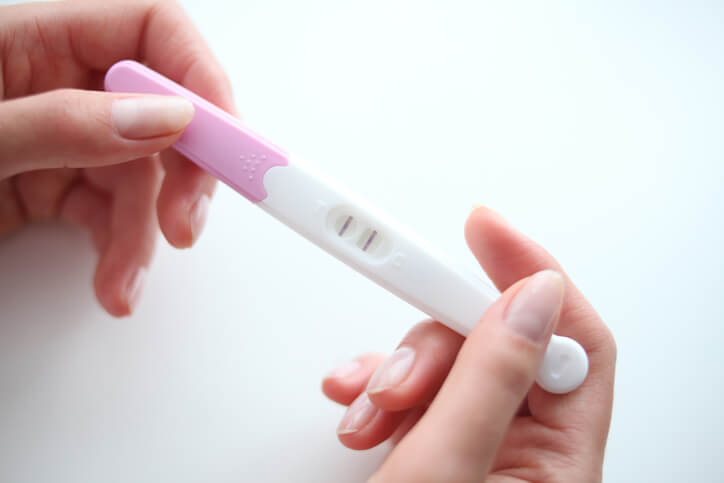When you become a surrogate, you’re tasked with one of the most important jobs of all: carrying someone else’s unborn baby. This is a weighty responsibility, and you’re probably wondering about everything there is to know. As January is National Birth Defects Prevention Month, this year, we’d like to put our focus on everything a surrogate needs to know for a healthy pregnancy.
First, here’s what you need to know about potential factors that cause birth defects.
What Causes Birth Defects?
A birth defect can either be very mild or severe. While the causes of one can vary, some of the most common risk factors are:
- Genetic or hereditary traits
- Lifestyle choices
- Untreated infections during pregnancy
- Being over the age of 35
- A pre-existing medical condition
- Exposure to certain chemicals
Finding out that the baby you’re carrying has a birth defect can be scary and overwhelming. But, if this were to happen, your surrogacy specialist will be there for you every step of the way. Your legal contract will also detail what happens moving forward if this unfortunate situation should occur. Remember: As long as you’ve followed your contract, this situation will never be your fault.
Thankfully, there are ways to reduce the likelihood of potential birth defects. Below are some tips to keep in mind during your gestational pregnancy.
7 Tips for a Healthy Pregnancy
1. Eat Right
It’s hard to make time for a healthy meal in the middle of your busy schedule. But that doesn’t mean it shouldn’t be a priority. Watching what you eat is one of the most important ways to ensure a healthy pregnancy. It’s also great for you, too! Make sure your plate is full of fresh fruits and veggies, and watch out for some of the most unsafe foods to eat during your pregnancy.
2. Drink Plenty of Water
Drinking enough water isn’t just good for you; it’s also essential for the baby. Water helps carry nutrients, flushes out toxins, and more. Not drinking enough water is also one of the leading causes of premature labor. Generally, you should drink about eight glasses of water a day. If you’re having trouble remembering to drink enough, try setting a reminder on your phone to stay hydrated.
3. Get the right amount of sleep
Your body needs sleep more than you think. You should try to get eight hours of sleep, but it’s okay if you need to take more. After the first trimester, you’ll probably need to start sleeping on your side. It’s common to have sleep problems during your pregnancy, in which case there are some suggestions on how to overcome them. If you have any other questions, don’t forget that you can always reach out to your doctor.
4. Exercise
If you can, try to get at least 30 minutes of activity in a day. We know it’s hard to keep moving, and exercising is probably the last thing you want to do right now, but staying active will help you sleep better and keep your stress levels low. It can also help ease your pregnancy symptoms and make pregnancy and delivery easier on your body. If you can, try to get at a healthy weight before your pregnancy. Some good ideas include walking, swimming and jogging. As long as you don’t overdo your workout, you should be perfectly safe.
5. Vitamins
Prenatal vitamins ensure that you and the baby are getting all of the nutrients you need. Don’t forget that these vitamins need to be taken alongside a meal, not as a substitute. We know that taking your vitamins can be hard to remember, so try setting an alarm on your phone at the same time every day so that you don’t forget. (Don’t forget: All of your medical costs will be covered by the intended parents.)
6. Stay away from harmful substances
There are a few substances that every pregnant woman should know to avoid. Drinking, drugs, and smoking should never be consumed while pregnant, as outlined in your surrogacy contract. There are also a few medications and chemicals that pregnant women need to avoid. Remember to talk to your doctor first before trying any new medication, as it could affect you and the baby.
7. Keep your stress low
With some much going on, and with your body changing in new, unexpected ways, it’s hard to stay positive. An important part of keeping the baby healthy is prioritizing your own mental and emotional health. If you find yourself struggling, remember that you can reach out to a surrogacy specialist or a counselor if you need someone to talk to. Whenever you feel overwhelmed, remember that there people here to help.
These tips are essential for any pregnancy, but they’re especially important when you’re a surrogate. By following just a few steps, you can ensure that your pregnancy will be a safe, healthy experience for you and the baby.
Following these guidelines are extremely important to have a healthy pregnancy. Most of the rules and suggestions will be outlined in your legal contract, too, but please don’t hesitate to reach out to a surrogacy specialist today. If you’re looking for support during your surrogacy, check in with our online community.









